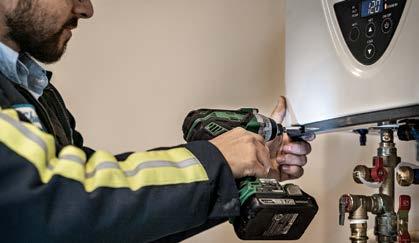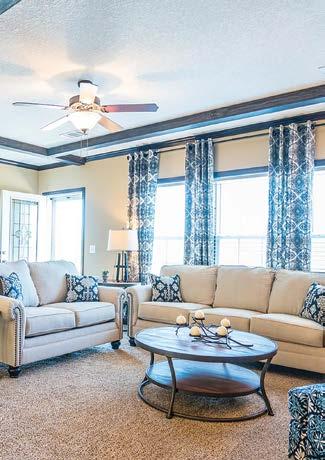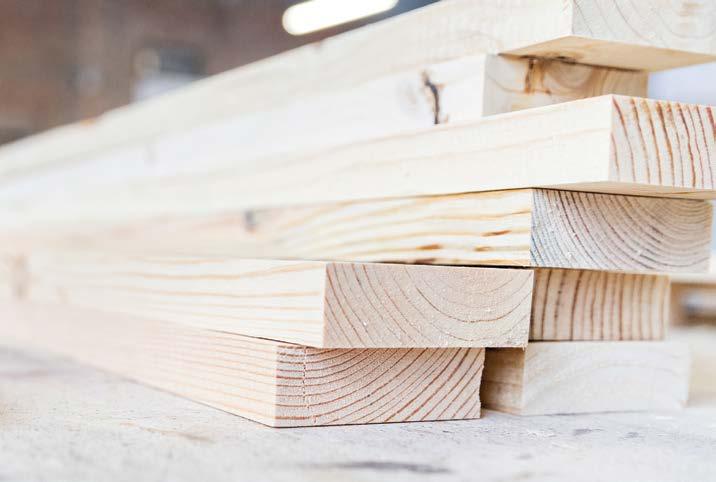
4 minute read
A Planner's Perspective on 2020 Development Trends for Manufactured Home Communities
Many factory-built homes were created for trailer courts, mobile home parks, and mobile home communities that can oftentimes come with negative stereotypes. Modern manufactured and factory-built homes are now almost identical in appearance to site-built homes. These homes are built to meet tight federal standards for quality, safety, and durability. Today, they’re seen as an affordable, eco-friendly, modern alternative to custom site-built housing and builders are seeing more value in building these types of homes than ever before.
Manufactured housing has experienced a major upsurge in production in the last few years and in order for builders to compete in this market, prioritizing home performance, comfort, and affordability is key. And it’s best achieved by incorporating reliable, efficient energy sources like propane.
Welcome to the new generation of factory-built homes: CrossMod™.
CrossMod is a term coined by the Manufactured Housing Institute to capture the essence of homes that bring added quality and innovation that buyers often feel only

can be found in off-site built homes. These new homes have the exterior aesthetics to fit in nearly any residential neighborhood, but bring the benefits and value provided only by the factory construction process.
As housing affordability challenges continue to grow, families of all economic backgrounds are searching for attainable, high-quality homes that avoid an unsustainable financial burden.
According to MHI, CrossMod homes placed on a permanent foundation and qualify for conventional financing help challenge exclusionary zoning ordinances, and are virtually indistinguishable from higher-priced, standard site-built options. With this new “hybrid” home, the industry has the potential to bring manufactured housing to areas around the country that have little or no exposure to off-site built homes.
How and Where Propane Can Help
Creating quality, affordable homes involves an integrated, whole-building design — including the energy source powering the home’s appliances and major systems. By incorporating propane, builders, home retailers, and ultimately homeowners, can count on the energy source for better performance and higher efficiency. Propane’s versatility extends to a wide variety of residential appliances including water heaters, furnaces, clothes dryers, ranges and ovens, fireplaces, and standby generators. Plus, with propane, homeowners will see cost savings the entire time they own their home. Propane-powered appliances have lower annual energy costs compared with electric counterparts.
For example: Propane tankless water heaters have 50% lower annual energy costs compared to electric storage tank water heaters.
Homeowners with propane can see $80 to $120 savings in annual energy costs compared with electric cooking appliances.
Propane clothes dryers have 20% lower annual energy costs compared with electric models. Plus, propane has a place in all parts of the country, not just where natural gas isn’t available. It gives community owners the chance to build gas neighborhoods on land that they’d previously thought to be less desirable because natural gas wasn’t available. Using propane can actually lower their cost for land while increasing the sales price because it isn’t electricity dependent.
And in some communities, building with natural gas simply isn’t possible or cost-effective. Propane offers a versatile, scalable source of gas that works with nearly any type of community or location.
And for larger or more dense communities, community propane systems offer a seamless energy option that operates just like a traditional natural gas system.
Community propane systems deliver propane gas through a network of underground pipes that connect to the homes with individual gas meters. A tank, or tanks, are installed in a central location below- or above-ground in a low-visibility common area. And because each home is separately metered, the homeowner only pays for the propane they use after they use it — just like with natural gas. Beyond powering appliances in the home, propane also can power community amenities such as backup generators, heated pools, clubhouses, and gas lamps. Propane is truly a whole-home energy source that works well for the growing CrossMod market.
As the housing market continues to change, and the demand for manufactured housing continues to grow, building professionals who are well-versed in energy-efficient methods and appliances will set themselves up for success. To learn more about energy-efficient propane appliances, visit Propane.com/Residential-Construction. MHV
Bryan Cordill is director of residential and commercial business development for the Propane Education & Research Council. He can be reached at bryan.cordill@propane.com.
We have a division solely dedicated to servicing our Manufactured Housing partners and customers.
We help your customer achieve their dream of affordable home ownership by offering:


► VA, FHA, and Conventional loans for land and home ► Non-occupying co-borrower programs ► Various payment options ► Stage funding & end loan programs
CONTACT A MANUFACTURED OR MODULAR HOME LOAN SPECIALIST TODAY! 1.844.370.3323
ManufacturedHousing@ffbf.com OPEN MONDAY THRU SATURDAY









